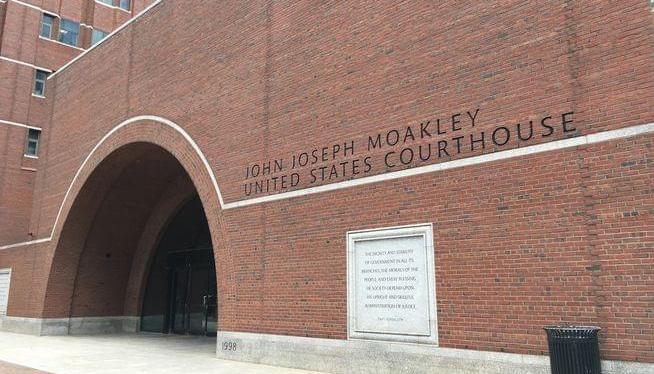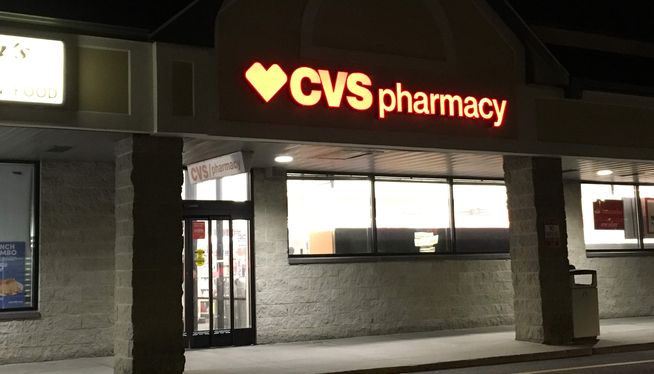
By JENNIFER McDERMOTT The Associated Press
Smoking was prohibited inside Rhode Island’s two casinos for most of the pandemic, and now casino workers want state lawmakers to make the ban permanent.
A bill is pending in the legislature to repeal the exemption granted to casinos in the state law that prohibits smoking in public places. Casino workers from Bally’s Twin River Lincoln Casino and Bally’s Tiverton Casino and Hotel planned to go to the State House on Wednesday to urge lawmakers to advance the bill, which has been held for further study.
Patti Doyle, a spokesperson for the two casinos, said Wednesday that Bally’s Corporation would address any personnel concerns at the bargaining table. She said they do have some concerns about the legislative proposal and already make accommodations for nonsmokers.
In New Jersey, Atlantic City dealers have been pushing lawmakers to prohibit smoking in the casinos for two years. New Jersey Gov. Phil Murphy has said he will sign a bill banning smoking in the nine Atlantic City casinos if the Legislature passes it.
The chair of the global Hard Rock casino and entertainment company said Monday that he spoke recently with Murphy about the “economic challenges” of banning smoking in casinos.
Twenty states require all commercial casinos to be smokefree indoors, including neighboring Massachusetts, and there are more than 150 smokefree sovereign tribal gaming venues, according to Americans for Nonsmokers’ Rights. Nine states still allow smoking indoors at commercial casinos, though areas within Indiana and Louisiana ban it and two of the three biggest casinos in Pennsylvania operate smokefree voluntarily, the organization said.
“It’s time to close these loopholes that give casinos special treatment,” Cynthia Hallett, ANR president and CEO, said in a statement.
Vanessa Baker, 57, said she supervises table games at the Tiverton Casino in Rhode Island and she noticed her health improve dramatically when smoking wasn’t allowed due to the state’s indoor mask mandate. When the mandate was lifted and smoking returned in March, Baker said she soon began coughing, getting headaches and having far less energy, which she attributes to secondhand smoke.
“In one week I saw my life deteriorate,” she said Wednesday.
The American Cancer Society Action Network, casino dealers and union representatives submitted testimony in support of the bill for a hearing in April. Democratic Rep. Teresa Tanzi sponsored the bill this year and similar legislation that stalled last year. She said Wednesday there’s far too much information about secondhand smoke to continue allowing smoking in casinos.
“I honestly believe it’s cruel,” she said. “They had two years of a smoke-free workplace. And just to be thrown back into a smoking environment like that without any consideration of the health implications to the workers, it only compounds the insult to injury that they’re experiencing.”
Tanzi said her proposal could be enacted as part of the state budget.
Doyle said employees can request to work in nonsmoking areas of the casinos, smoking is no longer permitted while sitting at the table games and the casinos have advanced ventilation systems. She said smoking was brought back after the indoor mask mandate lifted because the casinos have accommodated smoking and nonsmoking guests for a long time and guests seem to appreciate that policy.
“We went back to accommodating smoking and nonsmoking guests, with some guardrails in place,” she said.
Baker said everyone from the bartenders and cleaners to the security guards, the electricians and slot attendants want smoking to stop, to ensure a healthy workplace.
There is no safe level of secondhand smoke exposure, according to the Centers for Disease Control and Prevention, and the American Society of Heating, Refrigerating and Air-Conditioning Engineers has said that current ventilation or air cleaning systems cannot adequately control or significantly reduce the health risks of environmental tobacco smoke to an acceptable level.
While patrons at the table games are asked to move to the perimeter to smoke, Baker said casino workers are exposed to secondhand smoke throughout the building.
“They’re still smoking at the bar, they’re still smoking at the slot machines,” she said. “We’re still all breathing it in. It’s horrifying.”













